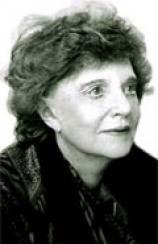Reading Group Guide
Discussion Questions
The Prime of Miss Jean Brodie

1. What does Miss Jean Brodie herself mean by the phrases "one's prime" and "the creme de la creme"? What additional meanings do these phrases take on in relation to Miss Brodie, her girls, and other characters?
2. What are Miss Brodie's "principles of education" and the practices she derives from those principles? How do her principles and practices differ from those of Miss Mackay? What are the pros and cons of each approach to education?
3. How do Miss Lockhart and her science room contrast with Miss Brodie and her lessons? Why are the girls "enthralled" by Miss Lockhart's science room? What ironies are involved in Miss Lockhart's marriage to Gordon Lowther?
4. Why does Miss Brodie admire Mussolini and, later, Hitler--"a prophet-figure like Thomas Carlyle, and more reliable than Mussolini"? What parallels emerge between Miss Brodie's "vision" and methods and those of the fascist dictators she admires? How do Miss Brodie's "politics" affect her life and her pupils' lives?
5. To what extent is Sandy's betrayal of Miss Brodie a multiple betrayal? Why does Sandy betray her former teacher? What connections exist between Sandy's relationship with Miss Brodie, her discovery of Calvinism, and her becoming a Catholic nun and the author of an influential book on moral perception? To what extent might Sandy's betrayal of Miss Brodie be justified?
6. How does Miss Brodie's attitude toward "team spirit"--it is "always employed to cut across individualism, love and personal loyalties," she announces--both agree with her educational principles and undermine her relationship with her students? What dangers arise from allegiance to a tightly organized group?
7. How does Miss Brodie's story of her ancestor, Willie Brodie, and his cheerful death "on a gibbet of his own devising"--"it is the stuff I am made of"--reflect on her own life and personality? Does Miss Brodie die "cheerfully on a gibbet of [her] own devising"?
8. When the seventeen-year-old Sandy realizes Miss Brodie's plans for Rose and Teddy Lloyd, she decides of Miss Brodie: "She thinks she is Providence . . . she thinks she is the God of Calvin, she sees the beginning and the end." To what extent is Sandy's assessment accurate? Has Miss Brodie assumed godlike prerogatives?
9. Shortly after her forced retirement, Miss Brodie writes to Sandy, questioning who might have betrayed her. Sandy replies, "If you did not betray us it is impossible that you could have been betrayed by us." In what ways does Miss Brodie betray her girls?
10. What is the role of religion in the novel, in Miss Brodie's behavior, and in Sandy's and the other girls' lives? What correspondences are established among Scottish Calvinism, Roman Catholicism, and fascism?
The Prime of Miss Jean Brodie
- Publication Date: February 1, 1999
- Paperback: 160 pages
- Publisher: Harper Perennial Modern Classics
- ISBN-10: 0060931736
- ISBN-13: 9780060931735








